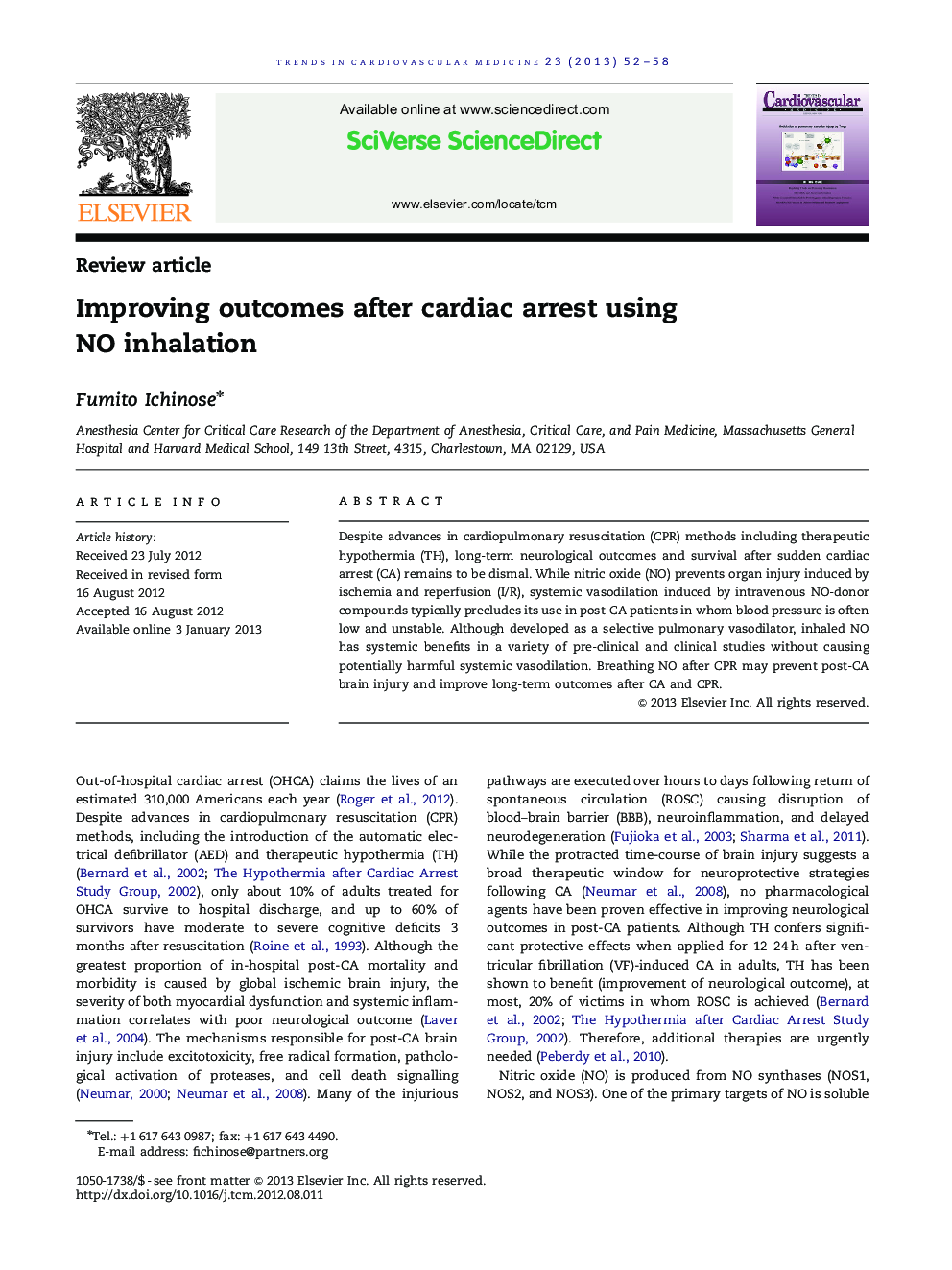| Article ID | Journal | Published Year | Pages | File Type |
|---|---|---|---|---|
| 3031694 | Trends in Cardiovascular Medicine | 2013 | 7 Pages |
Despite advances in cardiopulmonary resuscitation (CPR) methods including therapeutic hypothermia (TH), long-term neurological outcomes and survival after sudden cardiac arrest (CA) remains to be dismal. While nitric oxide (NO) prevents organ injury induced by ischemia and reperfusion (I/R), systemic vasodilation induced by intravenous NO-donor compounds typically precludes its use in post-CA patients in whom blood pressure is often low and unstable. Although developed as a selective pulmonary vasodilator, inhaled NO has systemic benefits in a variety of pre-clinical and clinical studies without causing potentially harmful systemic vasodilation. Breathing NO after CPR may prevent post-CA brain injury and improve long-term outcomes after CA and CPR.
